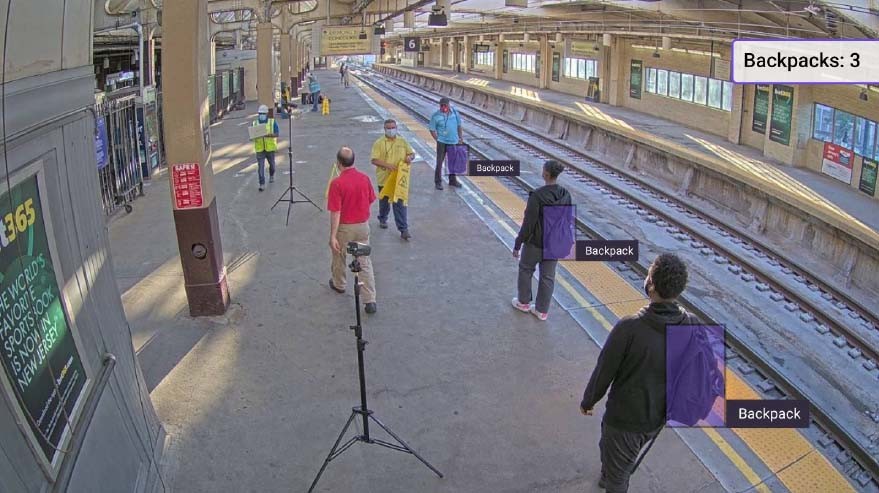
Advancing artificial intelligence: digital transformation during the age of coronavirus

The coronavirus pandemic upended all aspects of our lives, shutting down businesses, limiting in-person activities, reducing travel and in many cases eliminating our daily commutes. At the height of the pandemic in 2020, with ridership and revenue dramatically decreased, NJ TRANSIT in New Jersey turned to AECOM to help collect and convert data into meaningful and actionable insights that could enhance passenger safety, operations, and resource allocations.
The ability to collect, analyze and present passenger data — in real time using camera sensors and AI software — provided new insights to NJ TRANSIT, along with opportunities to explore viable use cases to enhance safety, security and even sanitation, making their rail network more efficient and effective. Use of AI for operations and planning holds great promise for transit as well as other transportation modes and infrastructure investments.
What it is
Artificial intelligence, or AI, is a broad term for describing machines or computers with technology that collects and processes massive amounts of data using a set of computer-based instructions, or algorithms, to deliver easily understandable, actionable information. Examples of everyday AI include voice transcription and automated assistants such as Siri or Alexa. While AI has been available for years, it has only recently been more widely adopted based on technological advancements during the past few years.
Agency benefits
With coronavirus as a concern, the abilities to maintain social distancing, identify potential for crowding and determine train capacity were desired insights for the agency to know and share with stakeholders and passengers. As a result, we have been working with NJ TRANSIT to implement a pilot program that configured AI software along with existing cameras to capture and count passengers boarding, exiting and waiting for trains at specific station platforms and routes.
Using AI to count passengers will give NJ TRANSIT a new approach to capture real-time travel numbers that would help improve planning and situational awareness of station environments, platforms and even train cars. Other potential benefits for AI may include improved asset management and ad sales.
Future riders benefit
While the completed proof of concept and ongoing pilot program are delivering benefits, we anticipate even greater advances as the AI program continues and camera coverage improves at stations and rail lines. Soon, AI will help provide riders with dynamic and relevant information in real time shared through mobile apps, websites and on the station’s digital signage areas. Higher levels of customer experience through more data-driven solutions such as Mobility-as-a-Service are also exciting opportunities for ridership with AI.
AI may also benefit future riders by detecting safety or security issues and improving response times for customer assistance at stations. We may soon be able to configure AI use cases to notify the train control center if smoke or fire is detected in an area or a suspicious package is left on the platform. Wheelchair assistance and other customer service activities could also be enhanced by using AI in certain station areas to automatically notify operations personnel of a specific need.
Stations could even be kept cleaner by using AI to detect when trash bins need to be emptied or if the platforms need to be cleaned. We may also use AI to notify the cleaning crew automatically rather than in preset schedules, improving resource allocation and making operations more cost effective.
System development and reporting
Metrics and projections developed through AI can advance transportation system development and design, enabling systems to fit with current and future demands. Using AI effectively requires traditional industry expertise as well as knowledge of best practices. Data scientists and experts in AI are integral to advancing AECOM’s digital ecosystem. Our expertise across all aspects of a market sector, combined with our capabilities in planning, design, construction and program management, uniquely positions us to help our clients implement AI solutions across the entire project lifecycle.
A new era in technology
While a pilot is in progress, NJ TRANSIT and AECOM are working to develop an AI network that can be deployed systemwide, providing real time benefits to riders and key stakeholders. While AI is just beginning to make its mark, it is easy to see its applications extending to multiple facilities and industries, improving all aspects of the way we live and work.